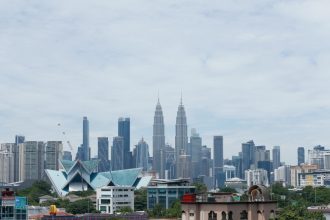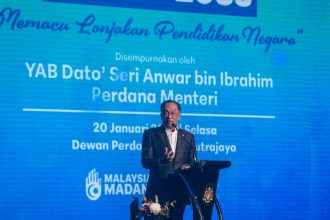On January 30, 2024, a Pakistani court sentenced former Prime Minister Imran Khan to 10 years in prison for allegedly leaking state secrets, marking the sternest penalty the cricket legend has faced. The judgment, coming just days before a general election, accused Khan, 71, of making public the contents of a confidential cable from Pakistan’s ambassador in Washington to the Islamabad government. Shah Mehmood Qureshi, former foreign minister, also received a 10-year sentence in the same case. This verdict follows Khan’s earlier three-year sentence in August, eliminating his eligibility for the upcoming February 8 election.
The court is expected to release a written verdict within the next couple of days, and Khan’s political party, Pakistan Tehreek-e-Insaf (PTI), has declared its intention to challenge the ruling. Khan’s lawyer, Naeem Panjutha, expressed disagreement with the decision on social media, stating, “We don’t accept this illegal decision.” Despite the conviction, PTI has not called for protests or demonstrations ahead of the election.
Regrettably, a bomb blast in Pakistan’s Balochistan region claimed the lives of three PTI members on the same day as Khan’s sentencing. The party provided no details about the responsible party. Khan’s aide, Zulfikar Bukhari, accused the legal team of being denied the chance to represent Khan or cross-examine witnesses, with proceedings occurring in the high-security Adiala jail in Rawalpindi.
Ali Zafar, another of Khan’s lawyers, asserted that the circumstances of the trial and sentencing increase the likelihood of the case being overturned on appeal. Despite these legal challenges, PTI’s Bukhari deemed the conviction an attempt to weaken support for Khan, asserting that people would respond by voting in larger numbers.
The sentencing raises questions about the credibility of the upcoming election, according to analysts, as Pakistan seeks political stability for economic recovery. The country is currently navigating a delicate path to recovery under a $3 billion International Monetary Fund bailout. Khan, ousted from power in 2022, contends that the secret cable referenced in the case revealed a conspiracy by the Pakistani military and the U.S. government to topple his government in 2022.
While Washington and the Pakistani military deny these allegations, Khan’s legal battles have intensified as he fights numerous cases. His latest sentencing, combined with other challenges like the loss of PTI’s election symbol and candidates contesting as independents, has created a complex political landscape in the lead-up to the election. Despite these hurdles, Khan’s message to his supporters on social media encourages them to vote for candidates aligned with him and emphasizes peaceful participation in the electoral process.








